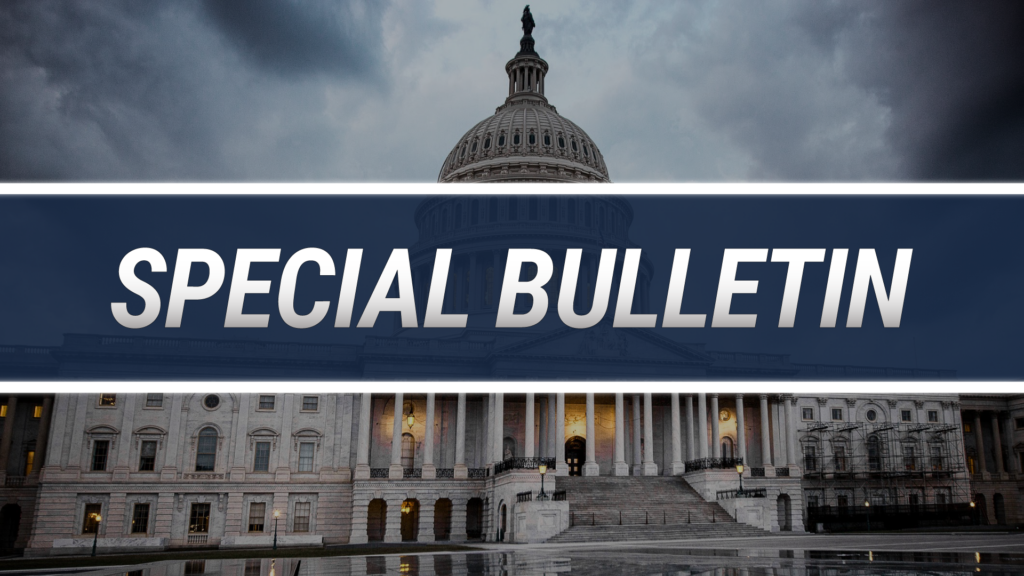
CRUSH and the New Era of Real-Time Program Integrity Oversight
EDITOR’S NOTE: The author of this article used AI-assisted tools in its composition, but all content, analysis, and conclusions were based on the author’s professional

An unprecedented number of individuals are now enrolled in Patient Protection and Affordable Care Act (PPACA) Marketplace health insurance plans – and federal officials this week signaled that the trend can likely be expected to continue.
The Centers for Medicare & Medicaid Services (CMS) recently announced the availability of half a billion dollars in grants over the next five years to increase the number of organizations that help people enroll on HealthCare.gov, marking the single largest funding allocation the agency has made available for so-called “Navigator” entities to date.
Along with making available the additional funding, CMS is encouraging eligible entities and individuals to apply for it – especially those that focus on “education, outreach, and enrollment efforts to underserved and diverse communities.”
Officials rolled out a six-question FAQ chart assembled by the CMS Office of Minority Health to address potential inquiries from providers. They noted that the primary intent of the aforementioned grant rollout was to promote “increased participation of smaller, community-based organizations as part of CMS efforts to reach people where they are.” This includes longer periods of multi-year grant funding and what they described as a shorter and easier-to-digest application process.
Organizations eligible for the grants may include but are not limited to a dizzyingly broad array of types: community and consumer-focused nonprofit groups; trade, industry, and professional associations; commercial fishing industry organizations; ranching and farming organizations; chambers of commerce; unions; resource partners of the Small Business Administration; non-healthcare licensed insurance agents and brokers; Native American tribes, tribal organizations, or urban Indian organizations; and state or local human service agencies.
CMS said it also arranged to hold two technical assistance sessions for potential applicants; the first took place on Thursday, June 13, while the second has been scheduled to run from 2-3 p.m. EST on Tuesday, July 2 on Zoom (2024 Navigator NOFO Technical Assistance Session No. 2, Meeting ID: 161 815 5550, Password: 829693). Applicants are encouraged to submit questions in advance of each session to Navigatorgrants@cms.hhs.gov.
Applications must then be received by Monday, July 8 through Grants.gov; for instructions on how to submit, see their “Quick Start Guide for Applicants.”
Not only is the $500 million total sum an all-time high devoted to Navigator grants, but the awards mark the first time such grants are being offered for more than three years of funding, “allowing grantees to better retain and add more staff who are trained to help consumers find affordable, comprehensive health coverage,” the Office of Minority Health said in its announcement. It also marks a drastic increase up to $100 million in annual Navigator grant availability, an all-time high and up tenfold from the $10 million that was allocated in 2018, 2019, and 2020.
However Navigator work has been funded, enrollment in PPACA insurance plans continues to grow; in January, the U.S. Department of Health and Human Services (HHS) issued a news release noting that a record 21.3 million Americans selected such a plan for the 2024 Open Enrollment Period. That included more than 5 million people new to the Marketplace coverage and 16 million who renewed their coverage.
“For decades, when it came to federal programs we could depend on to keep Americans covered, three were always top of mind – Medicare, Medicaid, and Social Security – but now it’s crystal clear that we need to add a fourth: the Affordable Care Act,” HHS Secretary Xavier Becerra said at the time. “Once again, a record-breaking number of Americans have signed up for affordable health care coverage through the Affordable Care Act’s Marketplace, and now they and their families have the peace of mind that comes with coverage. The ACA continues to be a successful, popular, and important federal program to millions of people and their families. As we celebrate the success of this most recent enrollment effort, HHS will double down on the Biden-Harris Administration’s efforts to increase access to quality care and lower costs.”
Earlier this month, HHS issued five new reports specifically illustrating increases in coverage among minority communities since the implementation of the PPACA.
“President Biden firmly believes that health care is a right, not a privilege, and is committed to making sure that everyone one of us has the peace of mind that health insurance brings,” White House Domestic Policy Advisor Neera Tanden said in a statement. “These reports show that by making health insurance more affordable, more accessible, and easier to sign up for, millions of Americans in underserved communities are now able to access the health care they need and deserve.”
“Behind the historic health equity gains championed by the Biden-Harris Administration are the countless communities we are connecting to health care coverage, often for the first time,” CMS Administrator Chiquita Brooks-LaSure added. “The combination of asking the right questions and unprecedented investments in Marketplace outreach will help us better understand the communities we serve, making coverage more attainable than ever for people who are our neighbors, friends, and loved ones.”
Specifically, officials noted, and largely attributable to gains in PPACA enrollment, the uninsurance rate for the following populations declined thusly from 2010-2022, based on available census data:
To learn more about the newly unveiled Navigator grants, go online to: https://www.grants.gov/search-results-detail/349642?linkId=460945059


EDITOR’S NOTE: The author of this article used AI-assisted tools in its composition, but all content, analysis, and conclusions were based on the author’s professional

While the coverage of telehealth is definitely a good thing, it has caused needless confusion. I would like to address a little of that today.
Please log in to your account to comment on this article.

Sepsis sequencing continues to challenge even experienced coding and CDI professionals, with evolving guidelines, documentation gaps, and payer scrutiny driving denials and data inconsistencies. In this webcast, Payal Sinha, MBA, RHIA, CCDS, CDIP, CCS, CCS-P, CCDS-O, CRC, CRCR, provides clear guideline-based strategies to accurately code sepsis, severe sepsis, and septic shock, assign POA indicators, clarify the relationship between infection and organ dysfunction, and align documentation across teams. Attendees will gain practical tools to strengthen audit defensibility, improve first-pass accuracy, support appeal success, reduce denials, and ensure accurate quality reporting, empowering organizations to achieve consistent, compliant sepsis coding outcomes.

Expert presenters Kathy Pride, RHIT, CPC, CCS-P, CPMA, and Brandi Russell, RHIA, CCS, COC, CPMA, break down complex fracture care coding rules, walk through correct modifier application (-25, -57, 54, 55), and clarify sequencing for initial and subsequent encounters. Attendees will gain the practical knowledge needed to submit clean claims, ensure compliance, and stay one step ahead of payer audits in 2026.

Accurately determining the principal diagnosis is critical for compliant billing, appropriate reimbursement, and valid quality reporting — yet it remains one of the most subjective and error-prone areas in inpatient coding. In this expert-led session, Cheryl Ericson, RN, MS, CCDS, CDIP, demystifies the complexities of principal diagnosis assignment, bridging the gap between coding rules and clinical reality. Learn how to strengthen your organization’s coding accuracy, reduce denials, and ensure your documentation supports true medical necessity.

Denials continue to delay reimbursement, increase administrative burden, and threaten financial stability across healthcare organizations. This essential webcast tackles the root causes—rising payer scrutiny, fragmented workflows, inconsistent documentation, and underused analytics—and offers proven, data-driven strategies to prevent and overturn denials. Attendees will gain practical tools to strengthen documentation and coding accuracy, engage clinicians effectively, and leverage predictive analytics and AI to identify risks before they impact revenue. Through real-world case examples and actionable guidance, this session empowers coding, CDI, and revenue cycle professionals to shift from reactive appeals to proactive denial prevention and revenue protection.

In this timely session, Stacey Shillito, CDIP, CPMA, CCS, CCS-P, CPEDC, COPC, breaks down the complexities of Medical Decision Making (MDM) documentation so providers can confidently capture the true complexity of their care. Attendees will learn practical, efficient strategies to ensure documentation aligns with current E/M guidelines, supports accurate coding, and reduces audit risk, all without adding to charting time.

Join Ronald Hirsch, MD, FACP, CHCQM for The PEPPER Returns – Risk and Opportunity at Your Fingertips, a practical webcast that demystifies the PEPPER and shows you how to turn complex claims data into actionable insights. Dr. Hirsch will explain how to interpret key measures, identify compliance risks, uncover missed revenue opportunities, and understand new updates in the PEPPER, all to help your organization stay ahead of audits and use this powerful data proactively.

Stay ahead of the 2026-2027 audit surge with “Top 10 Audit Targets for 2026-2027 for Hospitals & Physicians: Protect Your Revenue,” a high-impact webcast led by Michael Calahan, PA, MBA. This concise session gives hospitals and physicians clear insight into the most likely federal audit targets, such as E/M services, split/shared and critical care, observation and admissions, device credits, and Two-Midnight Rule changes, and shows how to tighten documentation, coding, and internal processes to reduce denials, recoupments, and penalties. Attendees walk away with practical best practices to protect revenue, strengthen compliance, and better prepare their teams for inevitable audits.

As AI reshapes healthcare compliance, the risk of biased outputs and opaque decision-making grows. This webcast, led by Frank Cohen, delivers a practical Four-Pillar Governance Framework—Transparency, Accountability, Fairness, and Explainability—to help you govern AI-driven claim auditing with confidence. Learn how to identify and mitigate bias, implement robust human oversight, and document defensible AI review processes that regulators and auditors will accept. Discover concrete remedies, from rotation protocols to uncertainty scoring, and actionable steps to evaluate vendors before contracts are signed. In a regulatory landscape that moves faster than ever, gain the tools to stay compliant, defend your processes, and reduce liability while maintaining operational effectiveness.
Happy National Doctor’s Day! Learn how to get a complimentary webcast on ‘Decoding Social Admissions’ as a token of our heartfelt appreciation! Click here to learn more →
CYBER WEEK IS HERE! Don’t miss your chance to get 20% off now until Dec. 1 with code CYBER25
CYBER WEEK IS HERE! Don’t miss your chance to get 20% off now until Dec. 2 with code CYBER24